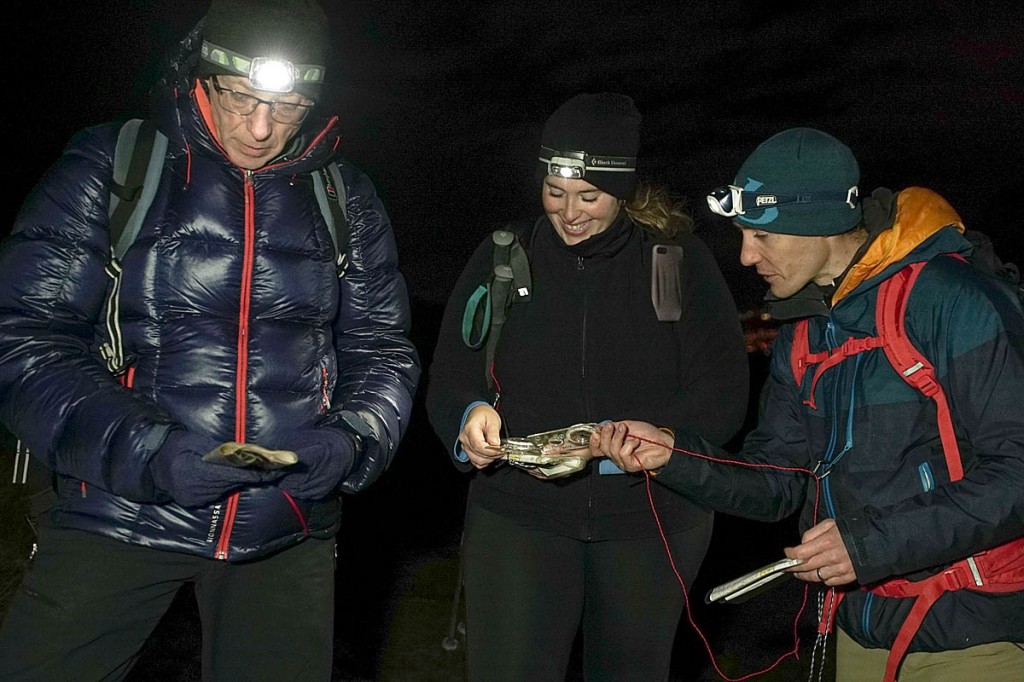Hillgoers need to prepare to end their day’s activities in darkness, as the end of British summer time looms.
A headtorch and spare are essential pieces of gear for walkers heading for the mountains and countryside, as daylight hours shorten.
People also need to clue themselves up on how to navigate in such situations, experts in Scotland said.
Mountaineering Scotland said mountain rescue teams have had a busy summer and have already had incidents this year where walkers either haven’t had a torch, or have had a torch but discovered they were not able to get themselves back off the hill once darkness fell.
The organisation represents hillwalkers, climbers, mountaineers and ski-tourers north of the border. Its mountain safety adviser Heather Morning said: “It has been good to see so many new people enjoying Scotland’s mountains this summer, and we hope they will continue to enjoy the great benefits that access to the outdoors brings. It’s important to stay safe though.
“People will have already noticed the days getting shorter, but this is really emphasised once the clocks change, and the chances are now much greater that you may end your walk in darkness.
“You should take spare batteries with you, although they can be very awkward to change if you’re working in the dark and the rain, so it’s better always to take a spare headtorch in your pack, with fully charged batteries already installed.”
Mountaineering Scotland said the shorter daylight hours also see a drop in temperatures and the first dusting of snow on the hills, meaning it’s a good time for hillwalkers to review what they carry in their packs.
Extra layers should be considered, with the addition of a synthetic duvet jacket and emergency shelter stored in the bottom of your rucksack in case you are stationary on the hill for any length of time.
Hats, gloves – at least two pairs are recommended – and face protection such as a neck gaiter will all add to comfort on the hill as autumn progresses into winter, it said.
Ms Morning added that now was also a good time for climbers and walkers to consider whether they could benefit from extra skills and training.
“There’s a greater chance you will have to navigate in poor visibility, so that’s a basic hill skill which is definitely worth working on.”
Ian Sherrington, head of training at Glenmore Lodge, the sportscotland national outdoor training centre, said: “This is an important time for all of us to shake off our planning and packing skills for the coming winter.
“Conditions in the hills can turn quickly. So as well as packing all the kit you need, plan to go early so you can return easily in daylight hours. It makes all the difference to a good day out.”
Kevin Mitchell, vice-chair of Scottish Mountain Rescue said: “We would encourage hillgoers to be proficient in navigation, check weather reports and be aware of when darkness will fall.
“However if they become benighted or injured they should not hesitate to call out Scottish Mountain Rescue volunteer teams by calling 999 and asking for police, then mountain rescue. Scottish Mountain Rescue Teams are on call 24 hours a day, 365 days a year.”
The clocks go back an hour at 2am on Sunday 25 October. In Aviemore, sunset will be at 4.45pm, after 9½ hours of daylight.
